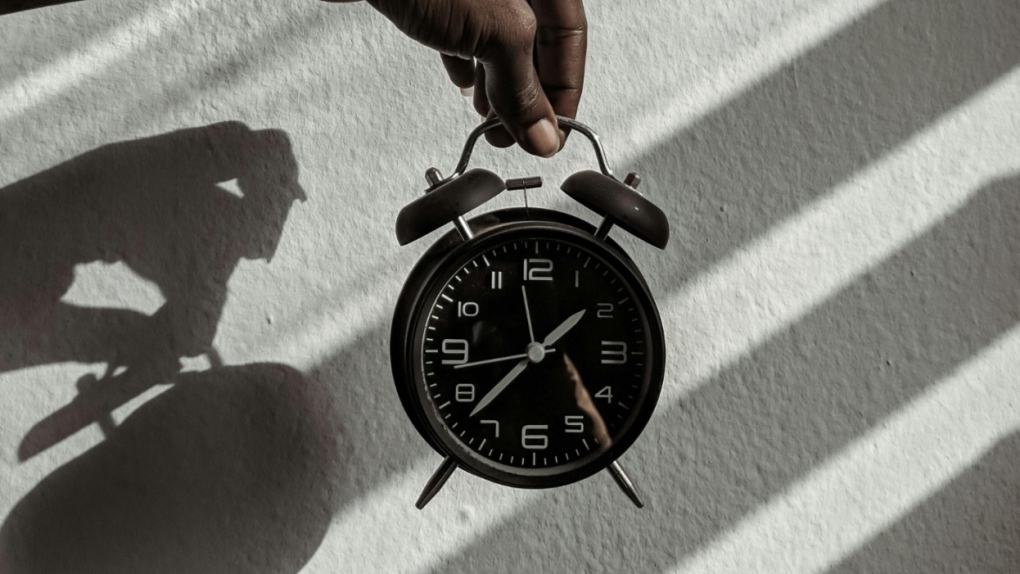Time change: When do we set clocks forward this year?

Canadians will soon have to adjust their clocks an hour ahead as we draw closer to the start of spring.
Daylight time begins Sunday, March 10 at 2 a.m. local time this year. Observers will set their clocks forward, or “spring ahead,” by one hour.
The change takes place just nine days before the official first day of spring, which this year is on Tuesday, March 19.
Daylight time, also called daylight saving time or daylight savings time, ends on Nov. 3 this year, when clocks will be turned backward an hour on that Sunday.
Who observes daylight time?
Daylight time begins for much of Canada on the second Sunday of March each year. Municipalities decide whether to observe the change, and some have opted not to take part in the practice.
Yukon, most of Saskatchewan and parts of Quebec, Ontario and British Columbia use standard time all year.
Why do we change the clocks?
While people will lose an hour of sleep on March 10, the seasonal time shift was created to maximize sunlight in the Northern Hemisphere, according to National Geographic.
There are conflicting accounts on when DST began.
Residents of Port Arthur, Ont., now Thunder Bay, were the first in the world to advance their clocks by one hour on July 1, 1908, according to several online sources.
While reports suggest this area was the first to try it out, many history sites say Germany was the first country to adopt it on April 30, 1916, in a bid to conserve electricity, followed by the United Kingdom weeks later.
And the University of Canada West says the credit for the idea belongs to a New Zealand entomologist, who first suggested a shift of two hours in 1895 – a move he proposed to provide more daylight hours after the workday during the summer.
Tips to prepare for time change
Dr. Mark Boulos, a sleep researcher and neurologist at Sunnybrook Health Sciences Centre in Toronto, says the time change can be a challenging time for people, especially those with underlying sleep disorders.
“One of the best ways to deal with the time switch is to ensure you’re getting enough sleep and your sleep is optimized before the time switch occurs,” Boulos said in a Zoom interview with CTVNews.ca.
Adults generally need seven to nine hours of sleep every night, he says. “Everyone is a little bit different in how much sleep they need. But it’s very important to have enough sleep every night.”
For those with underlying sleep disorders, he recommends they see their family doctor. “If you find that your sleep is unrefreshing, you have trouble staying asleep, falling asleep, then that should be checked out,” Boulos explained. “And ideally you could see your family doctor and potentially be referred to a sleep specialist if further investigations and treatment are needed.”
The impacts
Not getting sufficient sleep can affect the way our brains operate, our immune systems, our wakefulness, memory, mood and our overall functioning, Boulos said.
So even losing just an hour of sleep can have consequences, especially for those with underlying health issues such as sleep disorders, he explained.
“Particularly the time change where we lose time, there’s actually a higher risk of car accidents around that time period, also a higher risk of vascular events like stroke and heart attacks and so on and so forth,” he said.
Sleep hygiene is important to optimize and improve sleep quality, Boulos said.
He suggested:
• Avoiding napping during the day so you are more tired at night and thus get a better quality of sleep
• Avoiding eating and drinking a few hours before bedtime to avoid the need to use the washroom
• Exercising in the morning to ensure better sleep
• Partaking in relaxing activities such as reading, meditation and warm baths
• Maintaining the same wake time and bedtime every day
“Not only is sleep duration important, but also how you sleep may be very important as well,” he explained.
View original article here Source









